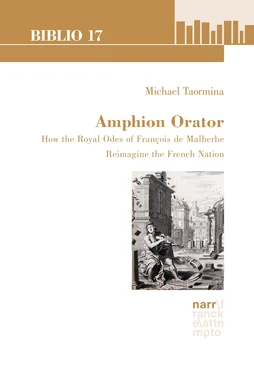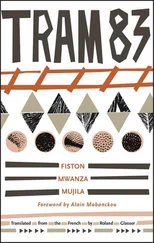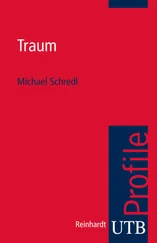Michael Taormina - Amphion Orator
Здесь есть возможность читать онлайн «Michael Taormina - Amphion Orator» — ознакомительный отрывок электронной книги совершенно бесплатно, а после прочтения отрывка купить полную версию. В некоторых случаях можно слушать аудио, скачать через торрент в формате fb2 и присутствует краткое содержание. Жанр: unrecognised, на английском языке. Описание произведения, (предисловие) а так же отзывы посетителей доступны на портале библиотеки ЛибКат.
- Название:Amphion Orator
- Автор:
- Жанр:
- Год:неизвестен
- ISBN:нет данных
- Рейтинг книги:4 / 5. Голосов: 1
-
Избранное:Добавить в избранное
- Отзывы:
-
Ваша оценка:
- 80
- 1
- 2
- 3
- 4
- 5
Amphion Orator: краткое содержание, описание и аннотация
Предлагаем к чтению аннотацию, описание, краткое содержание или предисловие (зависит от того, что написал сам автор книги «Amphion Orator»). Если вы не нашли необходимую информацию о книге — напишите в комментариях, мы постараемся отыскать её.
Amphion Orator — читать онлайн ознакомительный отрывок
Ниже представлен текст книги, разбитый по страницам. Система сохранения места последней прочитанной страницы, позволяет с удобством читать онлайн бесплатно книгу «Amphion Orator», без необходимости каждый раз заново искать на чём Вы остановились. Поставьте закладку, и сможете в любой момент перейти на страницу, на которой закончили чтение.
Интервал:
Закладка:
Addressing a monarch is not like addressing a private person. A monarch has a “mystical bodymystical body (of the king)”—a political abstraction informed by theology—and this notion is broad and flexible enough to include the commonwealthcommonwealth, the state apparatus, the territorial kingdom, and the patrie nationla patrie [nationnation] (KantorowiczKantorowicz, Ernst H. 208, 211, 232, 236, 247). Addressing a king in writing is the equivalent of what we would call an open letter, so that one was addressing at the very least the entire courtcourt (royal) and royal bureaucracy, and potentially all members of the body politicbody politic. If characterethoscharacter, or ethosethos, is not an idiosyncratic affair, it is certainly a type, the fusion of personality with social function. To cite Alasdair MacIntyre in After Virtue : “The requirements of a character ethoscharacter are imposed from the outside, from the way in which others regard and use character ethoscharacter s to understand and evaluate themselves. [ ] A character ethoscharacter is an object of regard by the members of the culture generally or by some significant segment of them. He furnishes them with a cultural and moral ideal. Hence the demand is that, in this type of case, role and personality be fused. Social type and psychological type are required to coincide. The character ethoscharacter morally legitimates a mode of social existence” (MacIntyre 29, his italics). Such observations hold true a fortiori in the case of a monarch. Ethosethos, in the moral connotation of the term, thus refers to a social type, and more narrowly, to the moral constitution of a particular individual. It signifies in fact that zone where type and individual mingle. Consequently, the royal patron targeted in Malherbe’s odes, while particular, even a particular (indeed the controlling particular), is neither a unity nor a private entity, but rather individual and collective, personal and public . A reader should therefore expect the royal patron’s characterethoscharacter to shape the composition of Malherbe’s encomiasticencomiumencomiastic poetry odes in both ways: the ode represents something particular about the monarch, for instance, personal attributes for which he or she is known or would like to be known, but such a representation is already shaped by the collective, embodying the ideals of a caste—and of a nationnation.
The final caveat is that the patron-client relation between monarch and poet may be represented as personal, even exclusive, but also, and on the contrary, as exemplary , illustrating the proper relationship of monarch and subject. Malherbe’s eloquenceeloquence may distinguish him from other subjects and uniquely qualify him to praise the monarch, but the argument and style of any one of his odes, because they are adapted to the monarch’s characterethoscharacter, model the proper thoughts and feelings which they seek to produce in the reading subject. Thus an ode aimed at the monarch, and modeled on him, at the same time targets the monarch’s subjects. This is what I mean when I claim that the actual persons being addressed in Malherbe’s royal odes go beyond the individual monarch. Every ode’s argument and style are calculated to affect the reader cognitively and emotionemotionally. This multi-directional relationship—monarch and poet, poet and reader, reader and monarch—requires a rhetorical tool broad and flexible enough to establish and to encompass these binaries. Ethosethos is such a tool, always already collective, guiding the choice of argument and style, which are calculated to reflect the values and ideals of an individual and/or a social group. For this reason, small differences in diction, exampleexamples, imagery, and intertexual sources from one ode to the next point to the composite nature of Malherbe’s audience: Catholics and ProtestantProtestants, nobles and commoners, great nobles and governors etc. However, the long-standing convention of decorum—where the orator so reliably and completely adapts himself and his discourse to the ideals and beliefs of the audience, that one may infer the characterethoscharacter of the audience from the arguments and style of the speech3—should not blind the reader to the creative possibility of Malherbe constructing , from the multi-directional relations of ethosethos, a whole greater than its parts. Malherbe’s principal task is to craft an ethosethos capacious enough to encompass diverse constituencies and inspiring enough to unify them in an imagined community. Put another way, the rhetorical ethosethos of the royal odes constructs a civic relation between monarch and subject, but also between poet and reader.
Since the monarch is the unifying focus of the various constituencies addressed in the odes, Malherbe would have wanted to choose an ethosethos appropriate to Henri IV which at the same time had broad appeal. The aristocratic ideal for the generation of nobles that had lived, fought, and survived the Wars of ReligionWars of Religion was the Aristotelian megalopsychos magnanimitymegalopsychos, or great soulmagnanimitygreat soul, and, in Henri’s particular case, such an ethosethos happened to be a fitting characterization. Most French subjects, including leading great nobles, expressed genuine admiration for his valor. Even enemies and critics had to admit that the scrappy king of Navarre had proven himself time and again in key military conflicts. Not only was he recognized as a master tactician of cavalry, but like CaesarCaesar and AlexanderAlexander (the Great), the greatest heroes of antiquity, Henri often fought alongside his men. Once during the siege of Amiens (1597), from which the Spanish had sallied to disable French artillery, Henri’s infantry was in danger of being routed. “Henri, alerted to the danger, dismounted, seized a pike, and charged forward to rally the troops” (Pitts 202). Almost fifty years before the duke of Enghien, the future Grand CondéGrand Condé (also duke of Enghien), distinguished himself at Rocroi (1643), unleashing a torrent of hyperbolic praise comparing the young noble to AlexanderAlexander (the Great) (Bannister, Condé 17), Henri IV incarnated the ideal of the classical hero. In the words of Pierre de L’Étoile, he was “king, captain, and soldier all together” (ctd. in Pitts 200).
A characterethoscharacter type described in the Nicomachean Ethics AristotleNicomachean Ethics (NE), the megalopsychos magnanimitymegalopsychos denotes someone of great merit, with the right concern for honor: “he thinks himself worthy of great things and is really worthy of them” ( NE AristotleNicomachean Ethics (NE) 4.3 1123b), and “what he thinks he is worthy of reflects his real worth” ( NE AristotleNicomachean Ethics (NE) 4.3 1123b15). AristotleAristotle’s notion does not exactly coincide with the definition of magnanimitymagnanimity as it is used in English and French today: the generous forgiveness of insult or injury—a characterethoscharacter trait, by the way, frequently displayed by Henri IV. But such readiness to pardon should be understood as a secondary consequence of the great soulmagnanimitygreat soul’s proper understanding of honor. The moral disposition to perform great acts of heroism puts him above retribution for small slights. Only the greatest dangers have the power to motivate him: “he faces them in a great cause, and [ ] is unsparing of his life” ( NE AristotleNicomachean Ethics (NE) 4.3 1124b8). “His actions are few, but great and renowned” ( NE AristotleNicomachean Ethics (NE) 4.3 1124b25). In addition, the megalopsychos magnanimitymegalopsychos is said to possess all the other virtuevirtues in the highest degree: “Magnanimitymagnanimity, then, looks like a sort of adornment of the virtuevirtues; for it makes them greater, and it does not arise without them” ( NE 4.3 1124a). Such characterethoscharacter traits, as well as the translated term “magnanime” [magnanimous], its paraphrase “grande âme” [great soulmagnanimitygreat soul], and their synonym “générosité” [magnanimitymagnanimity], frequently occur in the royal odes. If not every characterethoscharacter trait mentioned in Book 4 of the Nicomachean Ethics AristotleNicomachean Ethics (NE) is found in the royal odes, it is because the Greek ethosethos is filtered through the past chivalric ideals of the French nobilitynobility.4 Generally speaking, then, Malherbe’s great soulmagnanimitygreat soul is defined by great acts of valor, the right concern with honor, the thirst for glory, and the perfect devotion to love. The three other important qualities that distinguish Malherbe’s conception of magnanimitymagnanimity—the superlative, the quasi-divine, and the heroic—will be examined in Chapter 2.
Читать дальшеИнтервал:
Закладка:
Похожие книги на «Amphion Orator»
Представляем Вашему вниманию похожие книги на «Amphion Orator» списком для выбора. Мы отобрали схожую по названию и смыслу литературу в надежде предоставить читателям больше вариантов отыскать новые, интересные, ещё непрочитанные произведения.
Обсуждение, отзывы о книге «Amphion Orator» и просто собственные мнения читателей. Оставьте ваши комментарии, напишите, что Вы думаете о произведении, его смысле или главных героях. Укажите что конкретно понравилось, а что нет, и почему Вы так считаете.












